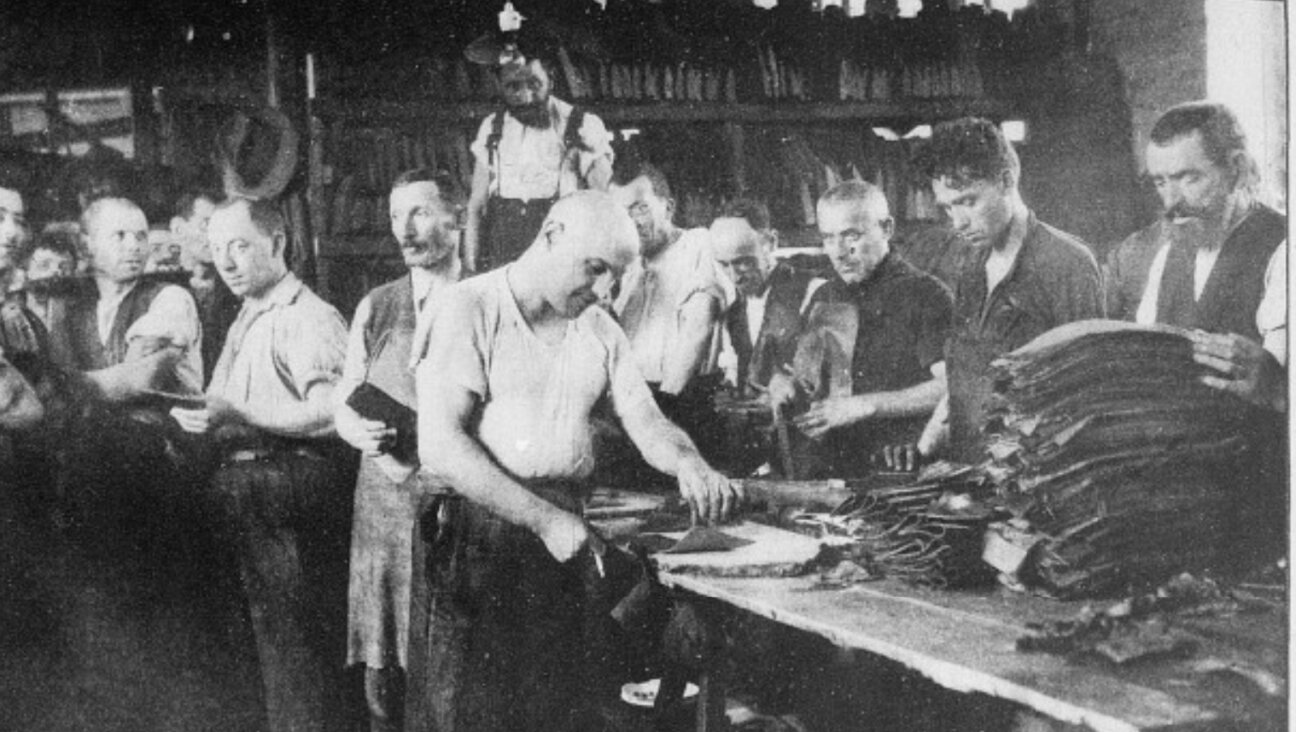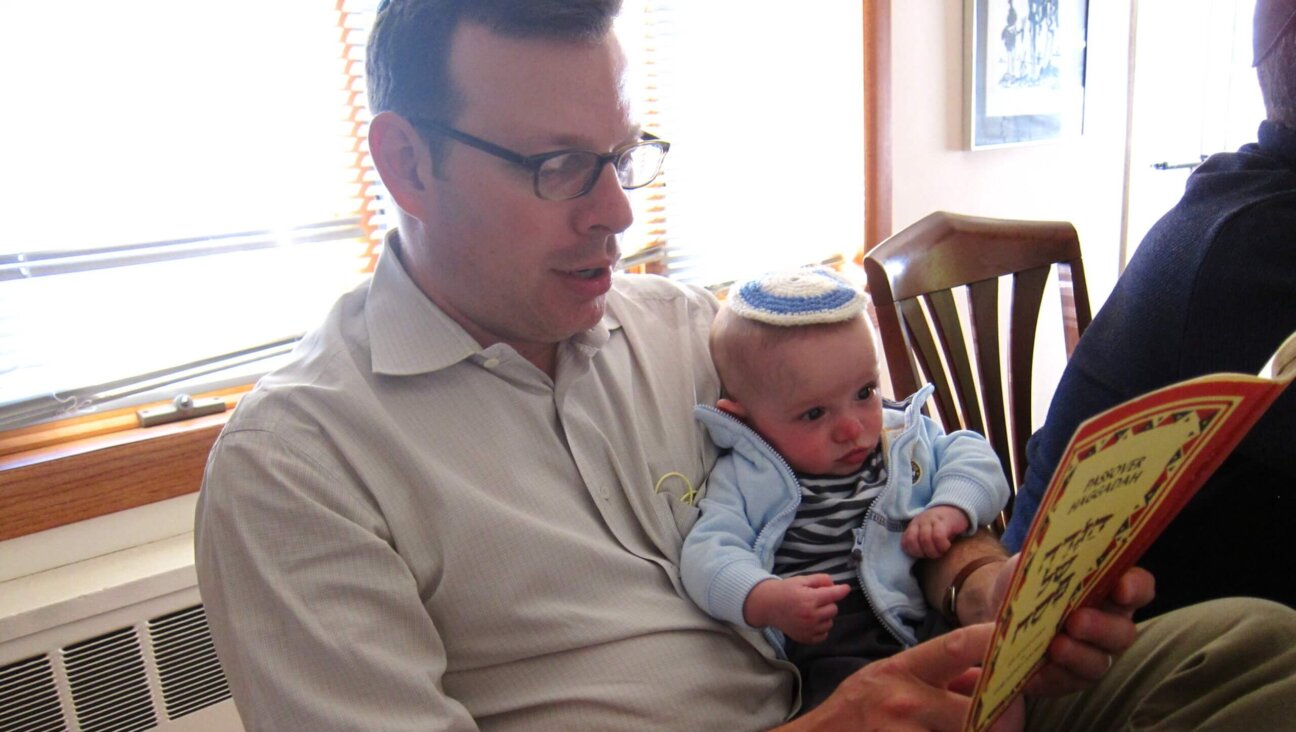Holy cow! Can one heifer herald the Third Temple — and the end of the world as we know it?
A red heifer calf has been born in Israel, to the delight of controversial Third Temple advocacy groups

Can one red heifer fundamentally change the world? Graphic by Mira Fox
The days of the Third Temple are apparently upon us. Why? It’s all thanks to a cow.
In the Bible, red heifers feature heavily in Temple law. The cows must be pure red, without even two hairs of another color, and without any other form of blemish, and they’re an essential part of sacrificial purity laws. Their ashes are required, according to passages in Numbers, to purify the Temple’s priests and its altars.
But these laws have long been irrelevant — after all, there hasn’t been a Temple in well over a millennia in which to slaughter the cows. Some religious stories, however, say that before the Third Temple is built, heralding the messianic era long prayed for by both Jews and Christians, a pure red heifer will be sacrificed again.
In Judaism, this era is prophesied to mean the coming of a time that includes the return of biblical laws of purity, thus allowing for truly holy life. For Evangelical Christians, it would herald the End Times, the return of Jesus to Earth and the Rapture; this belief has long driven Christian Zionism and Christian lobbying on behalf of Israel.
For both groups, there are a few requirements for this time to arrive: the restoration of the nation of Israel, Jerusalem becoming a Jewish city again — which was accomplished, sort of, by Israel in 1967 — and the birth of a red heifer to purify it all.
Apparently, according to a breathless announcement in the UK tabloid The Mirror, a red heifer has been born — the first born in Israel in 2,000 years.
The Temple Institute, a Jerusalem-based organization led by American-born Orthodox rabbi Chaim Richman, advocates for building the Third Temple. They have said they will be examining the calf carefully as it grows for blemishes in order to see if the time is right to start construction.
The heifer herself
This particular calf is not an accident; the Temple Institute has been working to breed a sacrificial cow for years, after importing red Angus cows from Nebraska. The most recent calf is not the first birth that has been announced with great excitement, and several have also been shipped in from the U.S., where Evangelical Christian farmers support the Jewish efforts.
While some Jews believe that the Third Temple can only be built in the prophesied messianic age, groups like the Temple Institute believe that the Jews have to take the prophecy into their own hands. In their interpretation, the long-prayed-for epoch can only come once the Temple has been built and purified, and, they believe, that’s up to them.
The Institute maintains an active YouTube channel, where they post “Temple Talk” podcast episodes, Torah lessons, and videos detailing their efforts to pave the way for a Third Temple, including recreating dozens of temple vessels. They have also built a giant gold menorah, according to Torah specifications and weighing in at half a ton — including 45 kilograms of 24-karat gold. It currently stands in the central plaza of the Jewish Quarter in Jerusalem’s Old City, “ready to be kindled in the rebuilt Holy Temple,” according to the Institute’s video.
Boneh Israel, another pro-Third Temple group, has both Jewish and Christian members that, according to its website, work on “actively bringing the redemption closer”; they are responsible for shipping several red heifers from Texas to the U.S. earlier this year.
And Rabbi Yitzchak Mamo, from yet another Third Temple group, Uvne Jerusalem, told the Christian Broadcasting Network that he has planned a ceremony for Passover 2024 to slaughter the imported heifers, assuming they have not developed any blemishes before then. Mamo said he bought a plot of land overlooking the Temple Mount 12 years ago, specifically in hopes of using it for the slaughter ceremony and beginning preparations for the Third Temple’s construction.
The trouble with a Third Temple
The destruction of the Temple is one of the greatest tragedies in Judaism. But building a new one — the Third Temple — is a complicated, controversial proposition, both religiously and politically.
The Temple Mount, the former site of the Second Temple, is currently the home of the Dome of the Rock and Al-Aqsa Mosque, both holy sites in Islam. Though Jerusalem is under Israeli control, the Temple Mount is managed by an organization called the Jordanian Waqf, with Israeli soldiers controlling ingress and egress.

The Western Wall, Judaism’s most holy site, is at its base, holy for its proximity to the former site of the Temple, but access to the hilltop is restricted for non-Muslims, and Jewish prayer inside the area has been officially prohibited for most of Israel’s existence.
Geopolitics aren’t the only issue, however; Jewish scholars, including the Israeli rabbinate, have ruled that the grounds are off-limits to Jews. The Holy of Holies, the inner portion of the Temple — access to which was restricted only to purified high priests — is unknown after the Temple’s destruction, and ritual law forbids anyone impure from entering. Due to the impossibility of Temple purity without a Temple, that means the possibility of accidentally coming into contact with the inner sanctum while impure is too high. Others argue that the Third Temple cannot be built until the messianic era, prayed for and predicted in Jewish texts, arrives.
Not all Jewish scholars agree, however — they never do. Jewish groups have, especially in recent years, been allowed to pray on the Temple Mount. At least one group, Shalom Jerusalem, led by Yehuda Glick, has made promoting and establishing Jewish prayer on the Temple Mount its mission and, though the rules have officially remained unchanged, Israeli soldiers have protected Glick and other Jewish worshippers on the hilltop.
The movements toward building a Third Temple have generally resulted in violence; Jewish prayer on the Temple Mount is seen by Palestinians as an assertion of Israeli authority on the holy site. And when a red heifer was in Haifa in the ’90s, a columnist at Haaretz even wrote that it should be shot before it caused another intifada.
But to true believers, the controversy makes no sense. They believe that the Third Temple will be a source of God for all people, and usher in an era of world peace. Despite evidence to the contrary.
A message from our Publisher & CEO Rachel Fishman Feddersen

I hope you appreciated this article. Before you go, I’d like to ask you to please support the Forward’s award-winning, nonprofit journalism so that we can be prepared for whatever news 2025 brings.
At a time when other newsrooms are closing or cutting back, the Forward has removed its paywall and invested additional resources to report on the ground from Israel and around the U.S. on the impact of the war, rising antisemitism and polarized discourse.
Readers like you make it all possible. Support our work by becoming a Forward Member and connect with our journalism and your community.
— Rachel Fishman Feddersen, Publisher and CEO






























